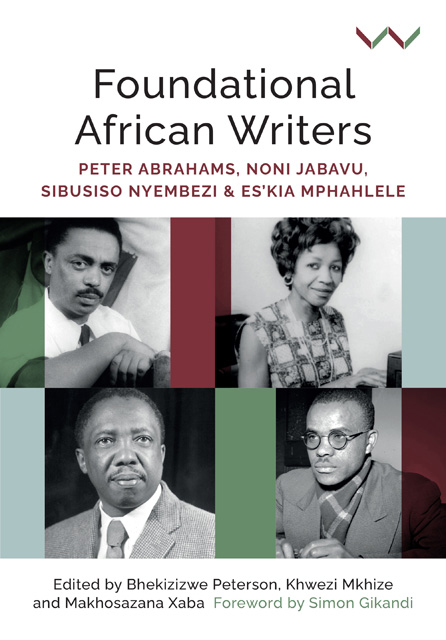Book contents
- Frontmatter
- Contents
- List of illustrations
- Foreword
- Acknowledgements
- Tribute to Professor Bhekizizwe Peterson
- Introduction
- Part I Remapping and Rereading African Literature and Cultural Production
- Part II South Africa and Fugitive Imaginaries
- Part III In the Eye of the Short Century: Diaspora and Pan-Africanism Reconsidered
- Contributors
- Index
16 - ‘She Certainly Couldn’t Be Conventional If She Tried’: Noni Jabavu, the Editor of The New Strand Magazine in London
Published online by Cambridge University Press: 01 September 2022
- Frontmatter
- Contents
- List of illustrations
- Foreword
- Acknowledgements
- Tribute to Professor Bhekizizwe Peterson
- Introduction
- Part I Remapping and Rereading African Literature and Cultural Production
- Part II South Africa and Fugitive Imaginaries
- Part III In the Eye of the Short Century: Diaspora and Pan-Africanism Reconsidered
- Contributors
- Index
Summary
In September 1961, when Noni Jabavu started work as the salaried editor of The New Strand magazine, her first book, Drawn in Colour: African Contrasts, had been reprinted three times, and the fourth reprint came out in November of that year. The book was first published by John Murray in London in April 1960, then by A. Mondadori Editore in Milan, Italy, in 1961 under the title Il colore della pelle, and would later be published by St Martin’s Press, New York, in 1962. Following her brief period as an editor she published a second memoir, The Ochre People: Scenes from a South African Life in 1963, also with John Murray and St Martin’s Press. The London, New York and Milan publishers rendered Jabavu visible as a writer, and the belated South African reissue of her second book in 1982, by Ravan Press, is testimony to the staying power of the written word.
Both books have been out of print for a long time, including the South African edition. Jabavu’s role as a columnist at the Daily Dispatch newspaper in East London, South Africa, in 1977 will soon be known to a wider readership when a book compilation of her columns titled Noni Jabavu: A Stranger at Home is published.
The publication of Jabavu’s first book inaugurated her as a crosscontinental literary figure. Having written as early as when she was in high school, at Mount School, York, she continued to write ‘[her] own jazz programmes’. The case of a black African woman, a British citizen, being published by a mainstream publisher so long before the advent of a distinct feminist, British women’s press, which only began in the 1980s, was certainly an uncommon occurrence.
Editorship at the London-based literary magazine The New Strand marked Jabavu’s first executive position. She distinguished herself as a groundbreaker by becoming the first black, as well as the first woman who had not been born in the UK, to be editor of this prestigious magazine. However, to those who knew her family history these events were merely a case of an apple falling directly under the tree. Probably because Jabavu’s editorship of a literary magazine was short-lived, it is the least known aspect of her literary output.
- Type
- Chapter
- Information
- Foundational African WritersPeter Abrahams, Noni Jabavu, Sibusiso Nyembezi and Es'kia Mphahlele, pp. 355 - 376Publisher: Wits University PressPrint publication year: 2022



